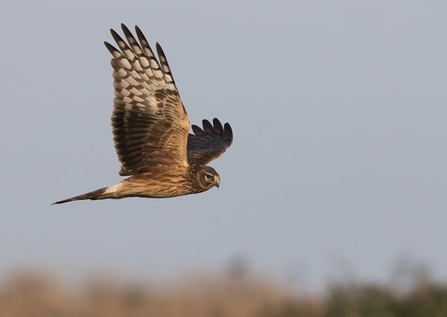It sets out how the Government is going to achieve their manifesto commitment to 'deliver the most ambitious environmental programme of any country on earth'. But with less than seven years left to meet the Government's target to halt the decline of nature by 2030, this plan must deliver a huge shift in action and ambition to reverse the chronic loss of wildlife.
Our CEO, Eliot Lyne, says: "We welcome the measures within the Government's Environmental Improvement Plan; however, we are concerned that a lack of action in the past has left previous environmental targets unmet.
"We are incredibly lucky in Norfolk to have many rich natural places - from the coast to the Broads and from chalk rivers to the Brecks, but we urgently need to see action to protect wildlife and fund nature's recovery. Wildlife is in crisis; it is declining at an alarming rate and the natural systems that our communities rely on for clean air and water are being seriously compromised. Reversing these trends means more investment in the protection of Norfolk's existing wild spaces and a focus on nature's recovery at a landscape scale. Policies and plans, whilst welcome, are only useful alongside committed action to embed nature's recovery into every decision, from planning applications and neighbourhood plans to major infrastructure schemes and agri-environment grants.

